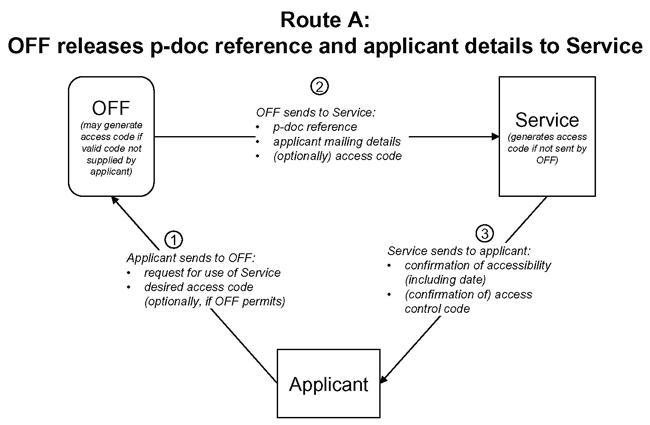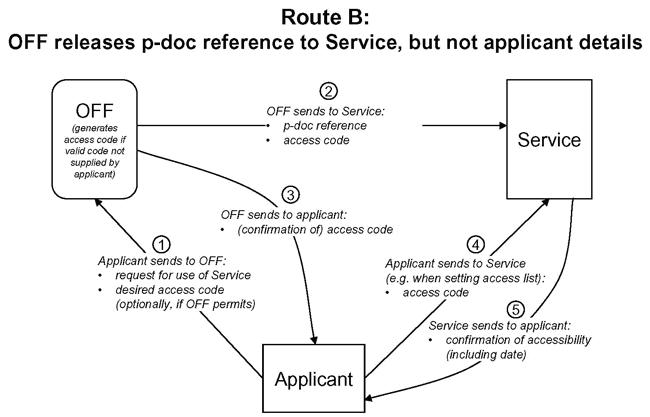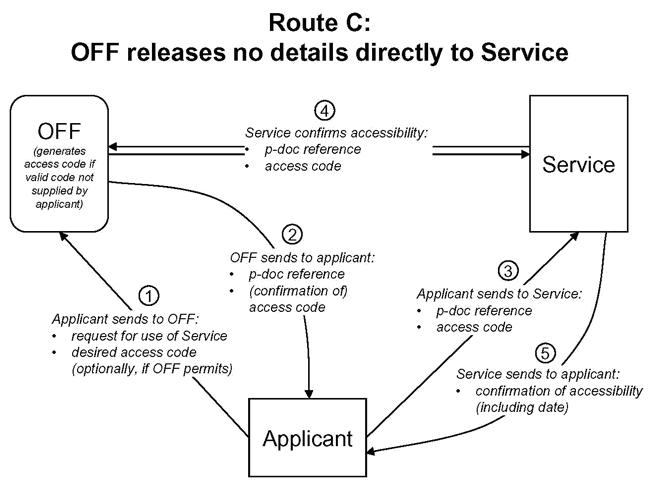Description of Routes
This page describes the different procedures – or Routes – that were available in the WIPO DAS System prior to July 2012.
There were three different procedures for Offices of First Filing (OFF) to make documents available in the System, and for applicants to grant access to Offices of Second Filing (OSF).
Only two of the routes (A and C) were used by participating offices.
These options were replaced in WIPO DAS version 2.0 (July 2012), which includes transition arrangements so that offices operating under the Routes A and C can continue to operate in the new System with minimal changes.
Route A
For offices which host documents in their own digital libraries and make the documents available to the service via automated remote access (web services).

Route B (not in use)

Route C for offices

Under routes A and C, the applicant is issued with an access code for each document and uses this access code to define an access control list to specify which offices of second filing may retrieve the document.